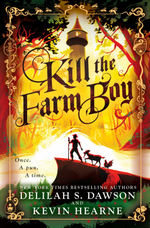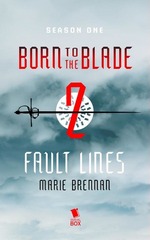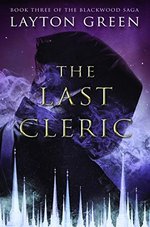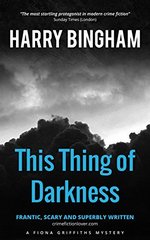 My Lady Jane
My Lady Jane
by Cynthia Hand, Brodi Ashton, Jodi Meadows, Katherine Kellgren (Narrator)
Series: The Lady Janies, #1Unabridged Audiobook, 13 hrs., 47 min.
HarperAudio, 2016
Read: July 2 – 5, 2016

| You may think you know the story. It goes like this: once upon a time, there was a sixteen-year-old girl named Jane Grey, who was forced to marry a complete strange (Lord Guildford or Gilford or Gifford-something-or-other), and shortly thereafter found herself ruler of a country. She was queen for nine days. Then she quite literally lost her head.
Yes, it’s a tragedy, if you consider the disengagement of one’s head from one’s body tragic. (We are merely narrators, and would hate to make assumptions as to what the reader would find tragic.) We have a different tale to tell. Pay attention. We’ve tweaked minor details. We’ve completely rearranged major details. Some names have been changed to protect the innocent (or not-so-innocent, or simply because we thought a name was terrible and we liked another name better). And we’ve added a touch of magic to keep things interesting. So really anything could happen. This is how we think Jane’s story should have gone. |
So begins the Prologue to this wonderfully fun book. It’s that second paragraph — but specifically the parenthetical sentence — that locked in my appreciation for the book. Thankfully, it continued to be as good as that paragraph, but I was going to be a fan of anything that happened from that point on.
The advantage you have with historical figures that no one knows anything about, is historical novelists — particularly those who like to play with their history — can do pretty much what they want. Lady Jane Grey is probably the English monarch that people know the least about (if they know about her at all) making her perfect fodder for this story.
This is one of those books that I can’t figure out how to summarize, so I’m just going to steal the publisher’s blurb, as much as I hate doing that, but my attempts have a mess, and theirs worked:
| In My Lady Jane, coauthors Cynthia Hand, Brodi Ashton, and Jodi Meadows have created a one-of-a-kind YA fantasy in the tradition of The Princess Bride, featuring a reluctant king, an even more reluctant queen, a noble steed, and only a passing resemblance to actual history—because sometimes history needs a little help.
At sixteen, Lady Jane Grey is about to be married off to a stranger and caught up in a conspiracy to rob her cousin, King Edward, of his throne. But those trifling problems aren’t for Jane to worry about. Jane gets to be Queen of England. Like that could go wrong. |
The characters are wonderful — no one’s perfectly good, or perfectly evil (although there are a few that come close in both directions). The authors keep things moving well, never letting the story detract from the characters, or one part of the narrative take over (there’s plenty of action, romance, friendship, espionage for everyone). Yes there’s magic, yes there’s comedy, but there’s also a lot of heart — a lot of joyful storytelling. This has it all. I really can’t point to a favorite bit, or favorite theme or anything. This is just one of those books I enjoyed all of.
Inside this novel is a love letter to books — and Jane is the representative book lover par excellence (though she could like poetry and novels a bit more) — there’s a treasure trove of quotations about reading, books, and related topics in these pages. All of them delightful.
The novel is clearly clever, witty, with a lot of heart, etc., but what sealed the deal for me was Katherine Kelgren’s outstanding performance. I would’ve enjoyed the novel pretty much no matter who wrote it (I’m not sure Scott Brick or Dick Hill could’ve pulled if off, but you never know), but Kelgren absolutely sold it. Her accent work was outstanding, the life and verve she brought to the project just wowed me.
I’m blathering on, I realize — yet I’m not sure I’ve actually said anything. Bah — just grab the book or audiobook. I don’t care if you’re YA or just A, if you like romance or not, male or female — if you like a fun story that’s well told and never takes itself too seriously (but never makes a joke out of anything important), read it. You’ll have a blast.
—–











